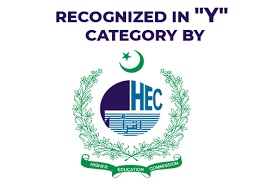Beneficial Ownership in the Sharī‘ah and Modern Law: A Case of Sovereign and Quasi-Sovereign Ijārah Ṣukūk Structures in Pakistan, Bahrain, and Malaysia
Abstract
 Abstract Views: 460
Abstract Views: 460
The concept of beneficial ownership has been used extensively in sovereign and quasi-sovereign ijārah ṣukūk structuring. This paper aims to examine the concept of beneficial ownership in the light of Islamic jurisprudence, common law and civil law systems. It overviews the laws related to beneficial ownership in the Pakistani, Bahraini, and Malaysian legal regimes. It further carries out the Sharīʿah appraisal of beneficial ownership focusing on its chief characteristics. The findings of this study posit that the legal status of ownership as per the Sharī‘ah is a need-based phenomenon and not a mandatory requirement. Hence, if a particular transaction complies with the ahkam (commands) for milkiyah and tamlikat (ownership), then transfer of ownership is a compulsory element for sale consequences. Moreover, it also explains that the use of beneficial ownership in sovereign and quasi-sovereign ijārah ṣukūk structures is acceptable in principle because the valid sale transaction that occurs transfers the ownership to the latter. Hence, it is described in ṣukūk prospectuses as ‘beneficial interest’. Finally, it may also be justifiable in the context of of ḥurīat al-taṣarruf (right to dispose-off the asset) and ‘qualified ownership’.
Keywords
Beneficial Ownership (BO), Ijārah Sukūk (IS), Legal Title (LT), Sharī‘ah Appraisal (SA)
Downloads
References
AAOIFI (2010). Sharīʿah standard for Islamic Financial Institutions. Bahrain: Accounting and Auditing Organization for Islamic Financial Institutions.
Abdul Ghani, N. R. et al. (2021). Critical analysis of beneficial ownership in mushārakah based home financing in Malaysia. https://www.researchgate.net/publication/349677830 DOI: https://doi.org/10.1108/QRFM-01-2020-0003
Abdul Ghani, N. R., et al. (2015). Beneficial ownership: to what extent it complies with Shari'ah? Asian Social Science, 11(27), 155. DOI: https://doi.org/10.5539/ass.v11n27p155
Abu Zahrah, M. (1996). Al-Milkiyyah wa Nazriyyah al-aqd fi al-Sharīʿah al- Islamiyyah. Cair: Dar al-Fikar al-Arab. https://onesearch.id/Record/IOS7419.slims-6099
Adawiah, E. R., Klopic, N., Ellias, M. R. F., & Haron, M. N. (2015). Application of the concept of beneficial ownership in ṣukūk structures: an islamic legal analysis. ISRA International Journal of Islamic Finance, 7(2), 105-133.
Al- Abbadi, Abd al- Salam. (1974). Al- Milkiyyah fi al- Sharī‘ah al-Islamiyah. Vol. 1. Muassat al- Risalah.
Al- Zarqa, M (1998). Al-Madkhal al- Fiqhi al-Amm. Dar al-Qalam
Al- Zuhayli, W. (2003). Financial Transaction in Islamic Jurisprudence. (M. A. El-Gamal, Trans.) Dar al-Fikr.
Al-Kasani, A. D. A., & Saud, B. I. (1998). Bada’ial-Sana’ifi Tartib al-Shara’i. Beirut: Dar Ihya’al-Turath al-‘Arabi,, 5, 439.
Al-Kasani. (2002). Bada i al- Sanai fi Tartib al-Sharai. Dar ihya al-Turath al- Arabi.
Al‐Suwailem, S. (2015). Sukuk: Challenges and Prospects. Journal of King Abdulaziz University: Islamic Economics, 28(2), 189-200. https://papers.ssrn.com/sol3/papers.cfm?abstract_id=3065440
Al-Zarkashi. (1994). Al-Fusul fi al-Usul. Wizarat al-Awqaf wa al-Shu’un al-Islamiyyah.
FBR. (2017). Adjudicating Authority Under Benami Transactions (Prohibition) Act Notified.Benami Act (2015) Pakistani legislation: https://www.fbr.gov.pk/adjudicating-authority-under-benami-transactions-prohibition-act-notified/132074
Trade Arabia Business News Information. (2007). Central Bank of Bahrain, Trust Registry Office. http://tradearabia.com/news/BANK_132980.html
Companies Ordinance. (1984). Pakistani Legislation. https://www.ma-law.org.pk/pdflaw/Companies%20Ordinance,%201984.pdf
Central Bank of Bahrain. (2016). Consultation on the proposed Trust Law. https://www.cbb.gov.bh/wp-content/uploads/2019/01/Consultation-Letter-11.pdf
Fahad, A. (2003). Naz’ul milkiyyah al- Khassa wa Ahkamuha fi Fiqh al- Islami. Maktabah al-Malik Fahad.
George, M. (1999). Malaysian trust law. Pelanduk Publications.
Hammad, N. (2008) Mujam al- Mustalahat al- Maliyyah wa al- Iqtasidiyyah fi lighat al- Fuqaha. Dar al- Qalm.
Ibn Taymiyyah. (1977). Majmu al-Fatawa (Vol. 29). Al-Maktbah Al-Tawfiiyyah.
Ibn-Nujaim, (1998). Ashbah wa'l-Nazai'r ala Madhhab Abi Hanifah Al-Nu'man. Dar Al Kotob Al Ilmiyah. https://kitaabun.com/shopping3/ashbah-nazair-madhhab-hanifah-numan-arabic-p-1383.html
Al-Qarafi, (1998). Al- Farooq. Available at: https://www.noor-book.com/%D9%83%D8%AA%D8%A7%D8%A8-pdf
Investment & finance (2017). Investment and finance encyclopedia of economics and finance. http://www.investment-and-finance.net/islamic-finance/i/ijārah-ṣukūk.html
ISRA (2011). Islamic Financial System: Principles and Operation. Kuala Lumpur: International Sharīʿah Research for Islamic Finance.
ISRA (2014). Islamic Capital Markets: Principles and Operation. Kuala Lumpur: International Sharīʿah Research for Islamic Finance.
ISRA (2017). Ṣukūk: Principles and Operation. Kuala Lumpur: International Sharīʿah Research for Islamic Finance.
Kahf, M. (2000). Al waqaf al- Islami: Tatawwuruh, Idaratyh wa Tammiyah. Lebanon: Dar al- Fikr al- Muasir.
Majallah al-ahkam al-adliyah. (1989). http://legal.pipa.ps/files/server/ENG%20Ottoman%20Majalle%20(Civil%20Law).pdf
Mikail, S. A. (2016). The concept of beneficial ownership: Highlights on Sharī‘ah issues in its application in Islamic finance. ISRA Report 2016.
National Land Code by Malaysian Legislation (1965) available at: http://www.mod.gov.bn/survey/SitePages/Brunei-7-8May2018.pdf
Public Debt Act. (1944). Pakistani legislation. http://www.finance.gov.pk/survey/chapter_20/09_Public_Debt.pdf
Rashid, S. K., & Hingun, M. (1999). Cases & Materials Equity & Trusts in Malaysia. International Islamic University of Malaysia IIUM.
Siddiqi, M. N. (2006). Islamic banking and finance in theory and practice: A survey of state of the art. Islamic Economic Studies, 13(2), 1-48. https://papers.ssrn.com/sol3/papers.cfm?abstract_id=3161388
State Bank of Pakistan. (1999). Incorporated under the State Bank of Pakistan, Asset-backed-securities Act. https://www.secp.gov.pk/document/companies-asset-backed-securitization-rules-1999/ https://www.secp.gov.pk/companies-act-2017/
Statutory Regulations and orders by Securities Exchange Commission of Pakistán, for Ṣukūk (2017). https://www.secp.gov.pk/document/sro-836-i2017-sukuk-privately-placed-regulations-2017/
Statutory Regulations and orders by Securities Exchange Commission of Pakistán, for Ṣukūk (2015). http://icm.org.pk/downloads/laws_and_definitions/secp/Issue%20of%20Sukuk% 20Regulations,%202015.pdf
Trust Law Act (1984), Pakistaní legislation: https://www.ma-law.org.pk/pdflaw/THE%20TRUSTS%20ACT.pdf
Zaidi, S. S. (2015). Domestic debt trap: an accountant’s perspective. https://www.brecorder.com/authors/78028/syed-shabbar-zaidi#
Contract Act. (1950). Malaysian Legislation. http://www.commonlii.org/my/legis/consol_act/ca19501974200/
Copyright (c) 2022 Shoaib Cheema, Muhammad Tahir Mansoori, Abdul Karim Usman

This work is licensed under a Creative Commons Attribution 4.0 International License.
Authors retain copyright and grant the journal right of first publication with the work simultaneously licensed under a Creative Commons Attribution (CC-BY) 4.0 License that allows others to share the work with an acknowledgement of the work’s authorship and initial publication in this journal.












